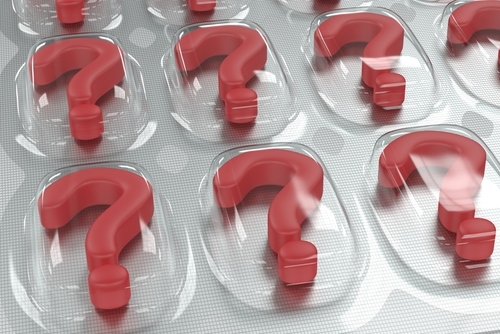
A new record of 113m illicit and counterfeit drugs worth €52m have been seized by customs officials in Africa.
The mass seizure, the fourth in the joint World Customs Organization (WCO) and International Institute for Research Against Counterfeit Medicines (IRACM) initiative against fake drugs, confiscated essential everyday pharmaceuticals including antimalarial drugs, anti-inflammatories, antibiotics, analgesics and gastro-intestinal medicines. More than 2m doses of anticancer drugs were also discovered.
Known as Operation ACIM (Action against Counterfeit and Illicit Medicines), the effort mobilised 16 countries' African customs administrations over a 10-day period, from 5 September to 14 September last year, to simultaneously inspect suspect cargoes at the main ports on the continent.
The biggest interceptions were made in Nigeria, Benin, Kenya and Togo, and in total 113 million illicit and potentially dangerous medicines, with an estimated value of €52m, were seized.
"Of the 243 maritime containers inspected, 150 contained illicit or counterfeit products," said Kunio Mikuriya, secretary general of the WCO. "The need for greater scrutiny of this type of fraud is no longer to be demonstrated and I hope that this operation and the mobilisation it has triggered on the side of customs administrations, other agencies involved in the control of these products and among rights holders will have a lasting effect."
Based on data from previous joint operations between the WCO and the IRACM, counterfeit medicines are a "worrying situation" in Africa, with seizures representing just the tip of the iceberg.
It is believed that hundreds of thousands of deaths are caused each year in Africa as a result of fake drugs, many of which are sourced from China and India.
The number of seizures made in joint IRACM-WCO operations since 2012 has been described as reaching "dramatic proportions", with almost 900m counterfeit and illicit medicines seized at the continent's borders during that time period, representing a value of €400m. The first joint operation seized 82m doses of counterfeit medicines.
The organisations say the seizures highlight the problem in Africa but the actual scale of the illicit trade on the continent is hard to estimate.
According to IRACM, the activity in Africa appears to be increasing. "The frequency of cases and the size of batches intercepted by customs, the increase in types of pharmaceutical products involved (which range from cough medicine to insulin, contraceptives and antibiotics), the 'quality' of the counterfeit products, the ever changing techniques used by drug counterfeiters, and the trafficking routes involved: all of these indicators are in the process of being analysed – and suggest that far from diminishing, the traffic in counterfeit drugs is increasing steadily," the organisation said on its website.
Last year, the World Health Organization (WHO) claimed that failures by national medicine regulatory authorities were making Africa a fertile ground for poor quality and fake drugs. This prompted the proposal of a new 10-year strategy by the WHO's Africa regional head aimed at strengthening the ability of the regulatory authorities to ensure medicines were safe and of high quality.
Customs action is seen as vital as the first rampart against the invasion of illicit medicines but focus is also needed at political, judicial and legislative levels, said Bernard Leroy, director of IRACM, who also said pharmaceutical trafficking is more profitable than the narcotics trade, generating as much as 20 times more revenue.
"The clock is ticking, both for dangerous medicine entering the country and, especially, for the victims of these medicines. We face unscrupulous traffickers who know that at the moment they are very difficult to trace. This is why IRACM is working actively to train field agents and introduce specific model laws aimed at increasing the fight against fake medicine trafficking," he added.
The recent 27th annual Africa-France summit in Mali made a commitment to tackle counterfeit medicines, highlighting "the serious dangers, especially for its people's health, that the growing trafficking of fake medicines, developed by transnational criminal
©
SecuringIndustry.com





